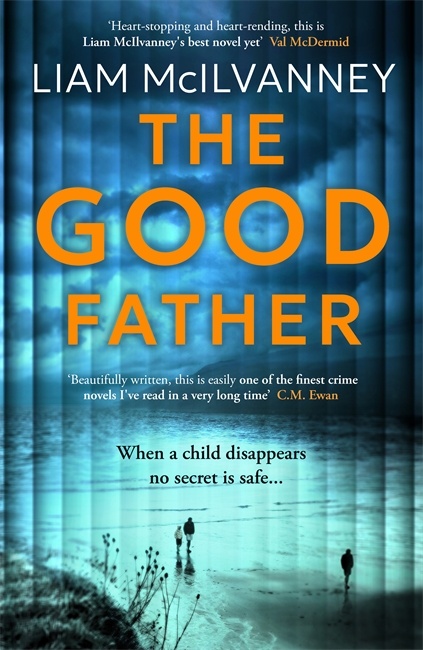Review: The Good Father, by Liam McIlvanney
Clare Travaglia can't put down Liam McIlvanney's latest thriller, THE GOOD FATHER.
A missing child is among a parent’s worst nightmares. Indelible images come to mind: Madeleine McCann, grainy young faces on milk cartons. It is this scenario and its reverberations that Liam McIlvanney explores in his fifth novel, psychological thriller The Good Father. McIlvanney is a Professor in Scottish Studies at Otago University, and has previously won the Saltire First Book Award, the Ngaio Marsh Award for Best New Zealand Crime Novel, and the McIlvanney Prize for Scottish Crime Book of the Year.
The Good Father is set in the small town of Fairlie on the rugged Ayrshire coast, ‘that crescent-shaped wedge in the west flank of Scotland’ where the ‘land rises from yellow beaches through green farmland, old castles, and grey, post-industrial towns to the ring of hills and moorland that hems us in from the rest of the country.’ The central character, Gordon Rutherford, is an academic at a Glasgow university. He is immersed in writing about the Scottish ballads when his seven-year-old son, Rory, disappears from the beach outside their home. Their faithful retriever returns with a lone black Adidas sandal—the only trace of Rory, the dog the only known witness—and Gordon’s life veers off course.
As reality sets in for Gordon and his wife Sarah, the police arrive, a search begins, volunteers comb the shore. There are reporters on the doorstep and too many visitors. Long days drag by and Rory is not found. The couple makes attempts at normality: a trip to the grocery store where Rory’s face is plastered across the tabloid newspapers; a drink at the local pub, where patrons snatch pitying glances at the pair. Gordon and Sarah search for answers and seek out witnesses, finding dead ends—and uncovering secrets. Weeks pass and Rory’s return ‘drifted into the blue distance of things that only happened in dreams.’ For Gordon, time is ‘a tap left running’ and ‘a snowball rolling down an Alpine slope.’ They cobble together an amateur taskforce. Their hope is buoyant and deflated in turns.
McIlvanney’s considered prose does service to both the sombre landscape: ‘The weather was closing in, dark clouds resting their bellies on the green hump of Cumbrae’, and the horror of losing a child: ‘A kind of sickness had settled over everything, a wrongness in the weft of the day.’ The insular town of Fairlie is as vivid as any character, a place where ‘there’s not one main road, but two. There’s the tarmacked artery that funnels the buses and cars and tourists to Largs. And then, behind the line of houses and away from the traffic, almost hidden from sight, is the other main road: the beach.’ The Scottish ballads are woven through the narrative, arising intermittently in Gordon’s consciousness, a haunting and lyrical backdrop to his suffering.
The novel is divided into three parts, the first following the immediate aftermath of Rory’s disappearance. In the second part, the weeks roll into years. The novel zooms out, takes a long-lens look at the effects of living through such a tragedy. McIlvanney pays close attention to his characters’ emotions and actions in fragile moments. They are sometimes expected, sometimes surprising, but McIlvanney gets us close enough to the characters to make them feel justified. Gordon and Sarah carry on as best they can. ‘But you don’t start again, do you?’ Gordon muses. ‘Or maybe you start again each day, each hour, every minute of the day.’
The Good Father is unpredictable and carefully constructed. McIlvanney has mastered the art of an unexpected twist, how to wield a cliffhanger, pulling the reader into a flurry of ‘just one more chapter’ pledges. It is heavy subject matter, but it’s a story that balances graceful writing and emotional depth with the heft of a savvy and gripping plot. It’s a story of the making and breaking of a family, of a man, of a community. ‘You’ll find things out about people. About the world.’ Reviewed by Clare Travaglia
